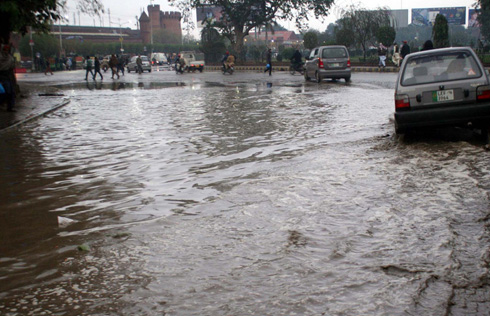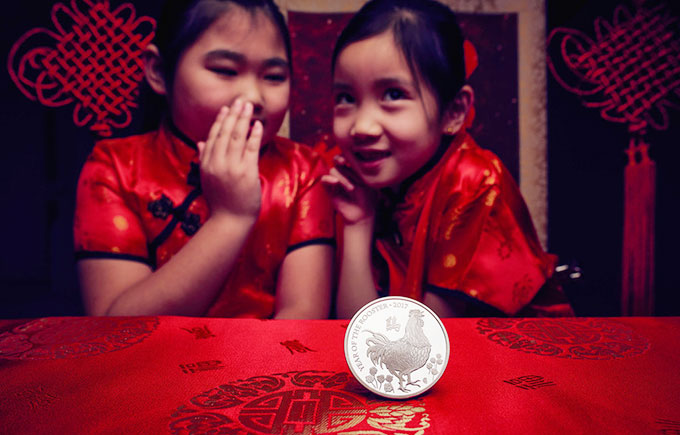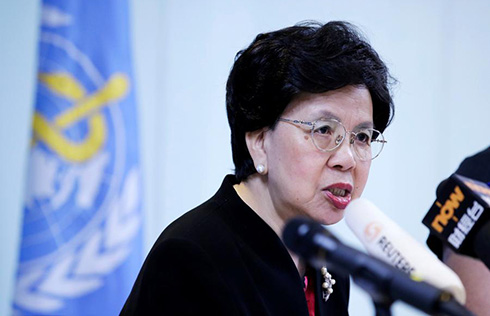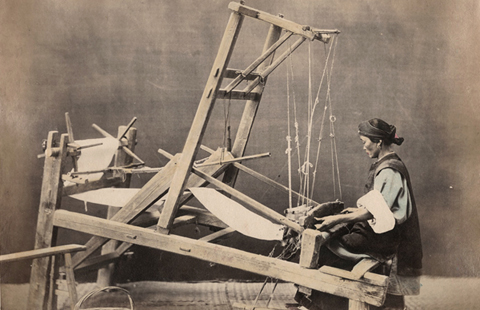Xi's globalization and opening-up pledges at Davos called convincing
President Xi Jinping's commitment to globalization and opening-up at the recent World Economic Forum in Davos, Switzerland, has bolstered European officials' confidence in expanding economic ties with the country, said Hans Dietmar Schweisgut, the European Union's ambassador to China.
The Delegation of the European Union to China saw encouraging signs in the speech because it "sent a clear message that China will continue its process of opening-up”, he said at news conference in Beijing on Wednesday.
"A speech is a speech; actions are actions. But a speech by the president of China is a bit more than a normal speech, so we are very much confident that this will indeed lead to further opening-up,"said Schweisgut. "Our hope is that we will see concrete progress in seeing this translated into real opening on the ground.”
The EU is looking forward to China's further loosening of restrictions on market access and investment in sectors like automobiles, information and communication technology, banking and financial services, and utilities, Schweisgut said.
Ma Yu, a senior researcher at the Chinese Academy of International Trade and Economic Cooperation in Beijing, said: "China should further advance negative lists to better protect investment from the EU, as well as to give European companies the right to acquire or merge with domestic companies, instead of only building joint ventures.”
A negative list says which economic activities are prohibited, while all others are considered to be allowed.
China attracted 813.2 billion yuan ($118.2 billion) in foreign direct investment last year, with investment from the EU surging by 41.3 percent, said the Ministry of Commerce.
"President Xi's speech in Davos focused not only on globalization but also on inclusive growth. This is an important concept, which we would also like to focus on more in Europe because open markets and trade have produced huge benefits worldwide," Schweisgut said.
There has been a globalization backlash in many parts of the world, however, he said. The EU needs to address the concerns of citizens who feel that they have been left behind, leading to rising inequality and insecurity among some, he added.
"But we do believe this should not go in the direction of protectionism … and we do believe in international cooperation and strengthening economic ties, especially with China,"Schweisgut said.
China is the EU's second-largest trading partner, behind the United States, and the EU is China's biggest trading partner. In 2016, Sino-EU trade declined by 3.1 percent year-on-year to $547 billion.
"The best way to do so is to push ahead with agreements that are significant and consequential, that are based on a positive agenda for trade.”
Since 2013, China and the EU have been negotiating on a comprehensive agreement on investment. Once it enters into force, the new agreement will replace the existing bilateral investment treaties between China and EU member states.
Last year, both parties agreed that the pact would cover not only investment but also market access issues, broad regulatory issues and sustainable development.
"The next step will be to agree on the core provisions of the agreement and exchange offers. That we hope will happen in 2017,"Schweisgut said.
Following Xi's speech and Schweisgut's comments, Fredrik Erixon, Director of the European Centre for International Political Economy (ECIPE) in Brussels said both China and the EU have strong reasons to fight against protectionism because economies prosper through trade and are weighed down by protectionism.
Erixon said: "With President Trump the US now takes trade policy in a protectionist direction. China as well as the EU needs to defend their trading rights. The best way to do so is to push ahead with agreements that are significant and consequential, and based on a positive agenda for trade.”
However, Duncan Freeman, Research Fellow at the EU-China Research Centre at the College of Europe in Belgium, said the main question the EU and China face is not just protectionism, but how to maintain a sustainable global economic system.
"At one level, they can do this by ensuring they are committed to keeping their economies open to trade and investment, and not resort to protectionist measures at a national level, but this also requires action at a global level to ensure that the system is sustainable.”
He said the EU and China could reinforce their commitment to the multilateral system, but also ensure their domestic policies reinforce the system by not focusing only on short-term national interest.
Freeman said a deadline of 2020 for investment talks might be tight, as agreements such as these could take many years, but that the deadline was possible if both side committed to improve their relationship.
Erixon said: "This agreement could help both sides to generate more investment and trade."
Dennis Pamlin, founder of 21st Century Frontiers in Sweden said that the most important part of fighting protectionism is to leave the old neo-liberal approach to trade behind and focus on how countries can collaborate to reduce poverty and develop environmental sustainability.
"Focus should be on smart trade, not trade at any cost,"he said.
Pamlin said there was a sense of urgency in keeping trade and investment relations open, but that many countries were under pressure from the public to show how policies are benefiting them and not just a few companies and the wealthy.
Pamlin said: "It is time to open up the discussions about the trade and investment deals so we can discuss how they best deliver on the key policy targets as mentioned above.”
Zhong Nan contributed to this story.
Contact the writers at jiangxueqing@chinadaily.com.cn

























